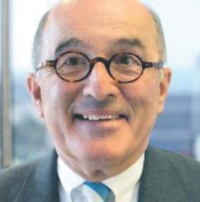January 22, 2025

It is inevitable at this time of the year that many of us think about family. Growing up in Dorchester, I just assumed that everybody lived under the same roof as their grandparents.
In my case, my father’s mother lived with us on the second floor. My mother’s parents, who owned the house, lived on the first floor. Codman Hill Avenue was full of people in very similar situations. That was the case with the Curries, the Connollys, the Prendergasts, the Sciabas, the Owens, the Bakers, and many others.
In those much simpler times after World War II, families tended to stick around. Children didn’t flee to other states or other countries, as is so common today. That meant that holidays were really very easy.
In my case, because my grandfather was housebound, the eight of us celebrated all of our holidays under the same roof on Codman Hill Avenue from the spring of 1958 through the fall of 1964. Now we are at the mercy of train schedules, flight schedules, and weather reports.
Prof. Robert Putnam, who wrote about social capital and isolation in his book “Bowling Alone,” has written significantly about dramatic changes in American life. I think it is quite connected to the changes to the American family derived from the ability to so easily move from one jurisdiction to the other. Growing up in Dorchester, we thought that it required a passport to move from St. Ambrose parish to St. Gregory’s, as we did in 1956.
In other states, as well as in Massachusetts, the experiences of community life, family life, and life surrounding a church or a synagogue have changed dramatically. Just as people change jobs much more frequently than was the case a half-century ago, so do people move from one part of the country to the other.
Back when Walter Baker relocated to Delaware over 60 years ago, there was trauma throughout Dorchester Lower Mills because some of the employees also made the move to hold onto their jobs; others were out of work because there weren’t a lot of other chocolate factories in Dorchester at the time.
Putnam speaks about the rapid decline of civic life in America, which is almost simultaneous to the significant changes in family demographics. I think he calculated that the peak of civic life in America was the year 1964, which was when the Greatest Generation was on either side of 50 and in their peak years of earnings and civic involvement.
If any family in Dorchester had a problem in those days, the St. Vincent DePaul Society, the Holy Name Society, the Knights of Columbus, and the VFW Post, all within walking distance of each other, came to the aid of the family. No fingerprints. Perhaps a thank you note. That has all changed. Knights of Columbus Councils have merged and, in some cases, have gone out of business. VFW Posts have handed in their charters and their liquor licenses. Parishes have merged. Those community building blocks are no longer. I think we are the poorer because of it.
We have, of course, replaced face-to-face meetings and in-person community involvement with an obsession for electronic communications. I think that the American people are not faring as well as they did back when we met in church basements and spoke among ourselves and did good deeds. It is much easier to be angry at someone tapping away on a screen, whether it be in the palm of one’s hand or on a laptop, than it is when you meet someone after church for a cup of coffee and a donut.
The changes of which I have written in the way we communicate and the way we access information is dramatically connected to the reduction in the community life that I knew growing up.
If you were lucky enough to see your family, or most of your family, during this season, say a prayer of thanks, as I have.
Larry DiCara is an attorney and former Boston city councillor.



